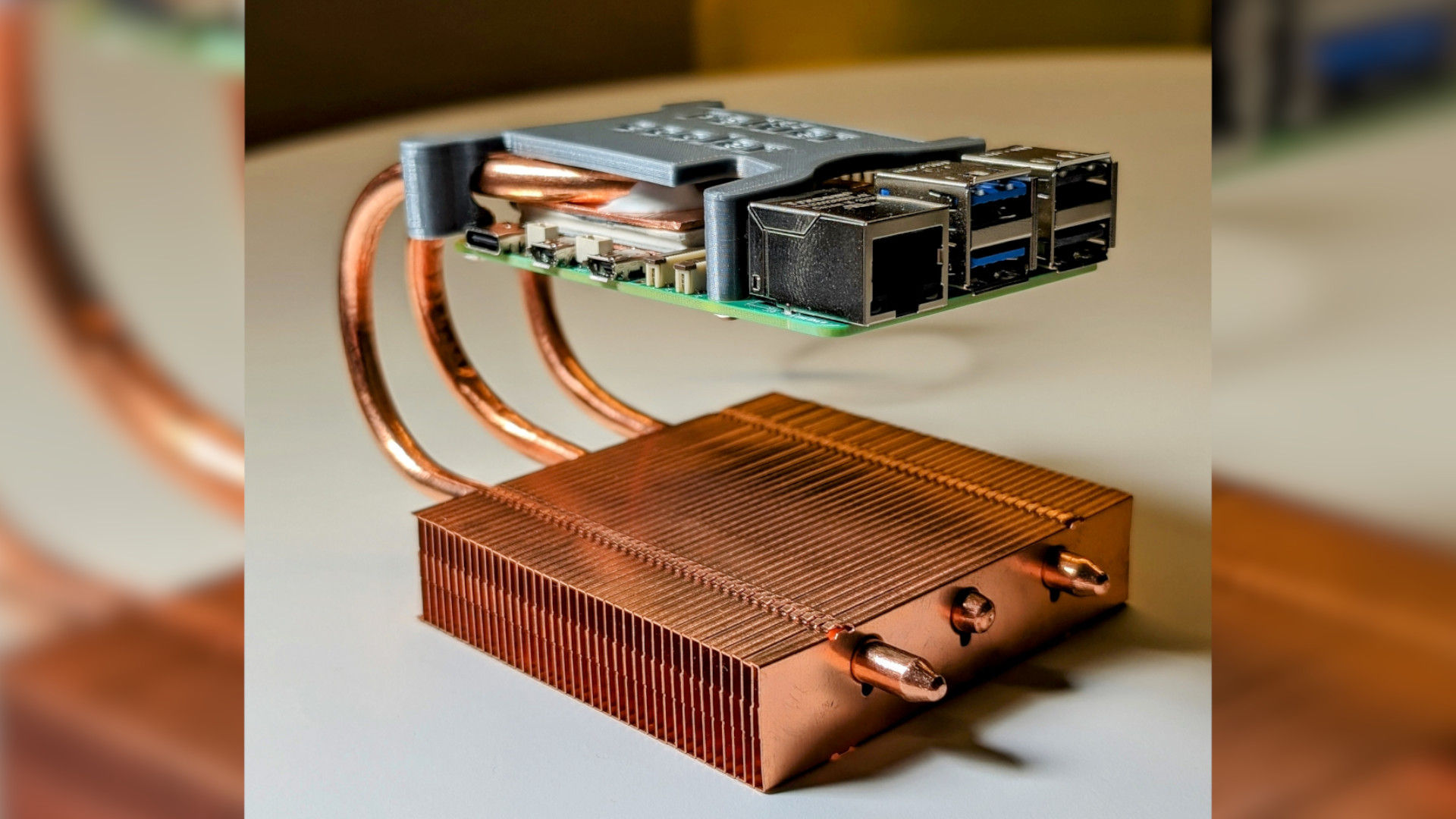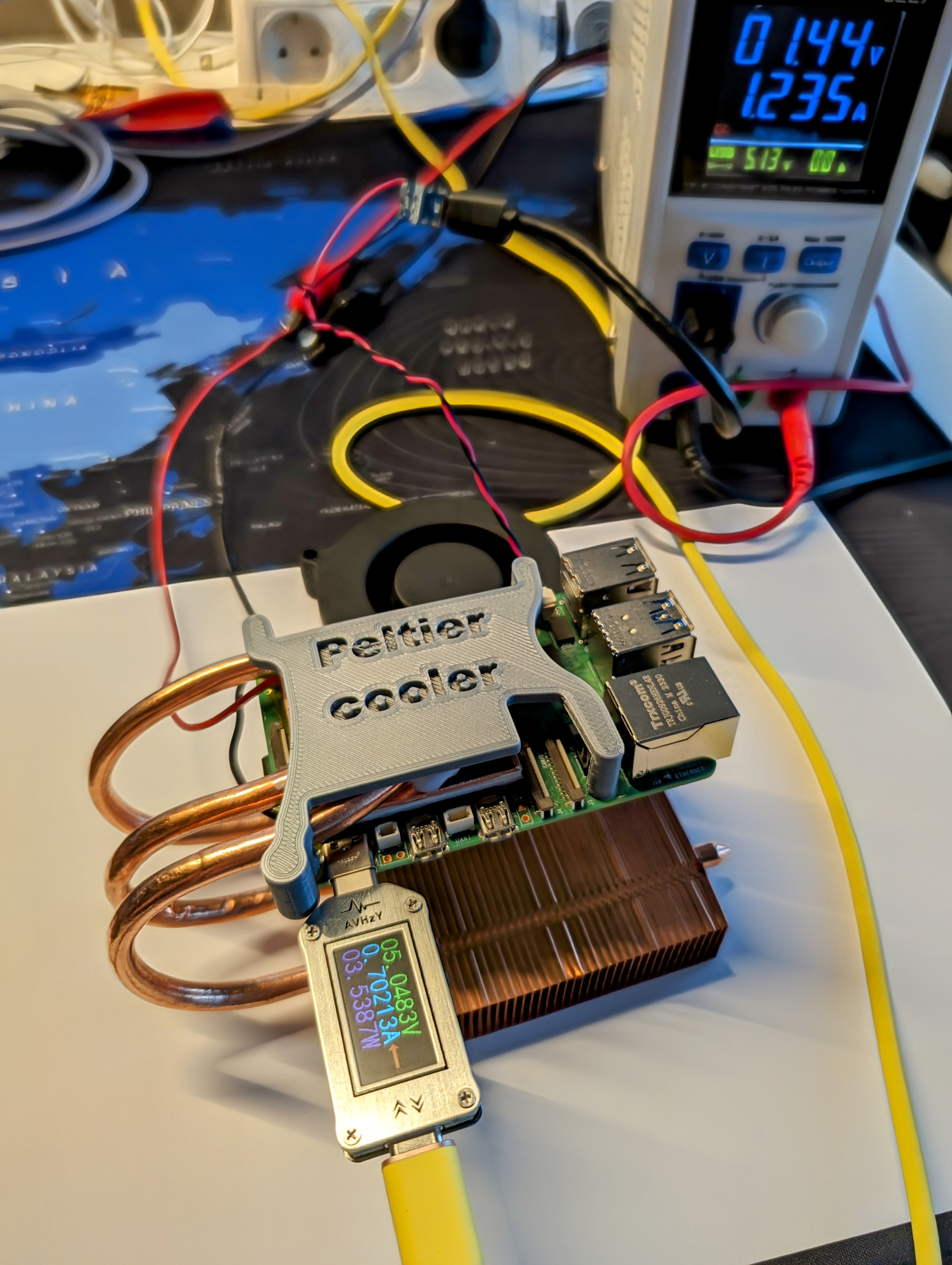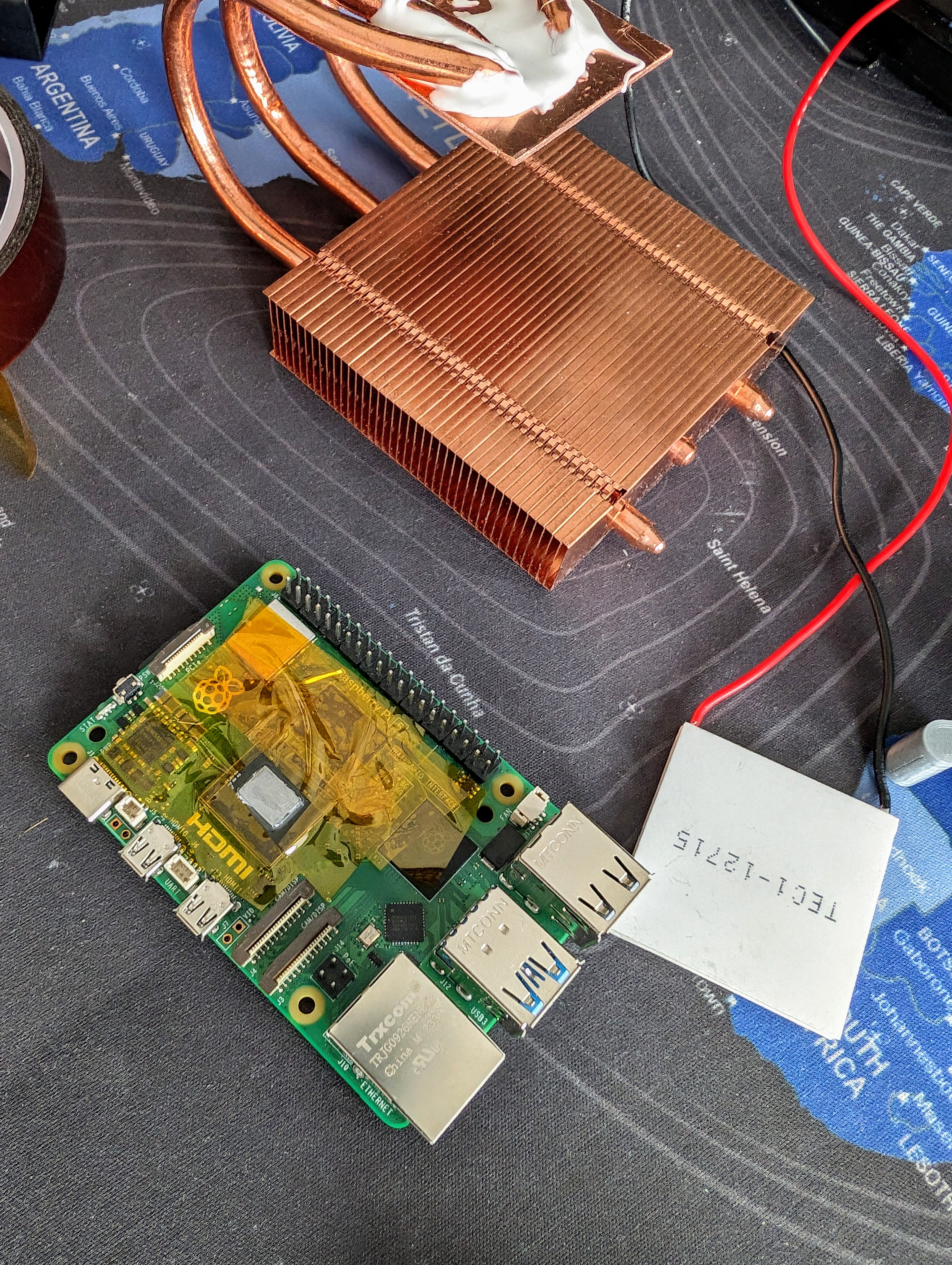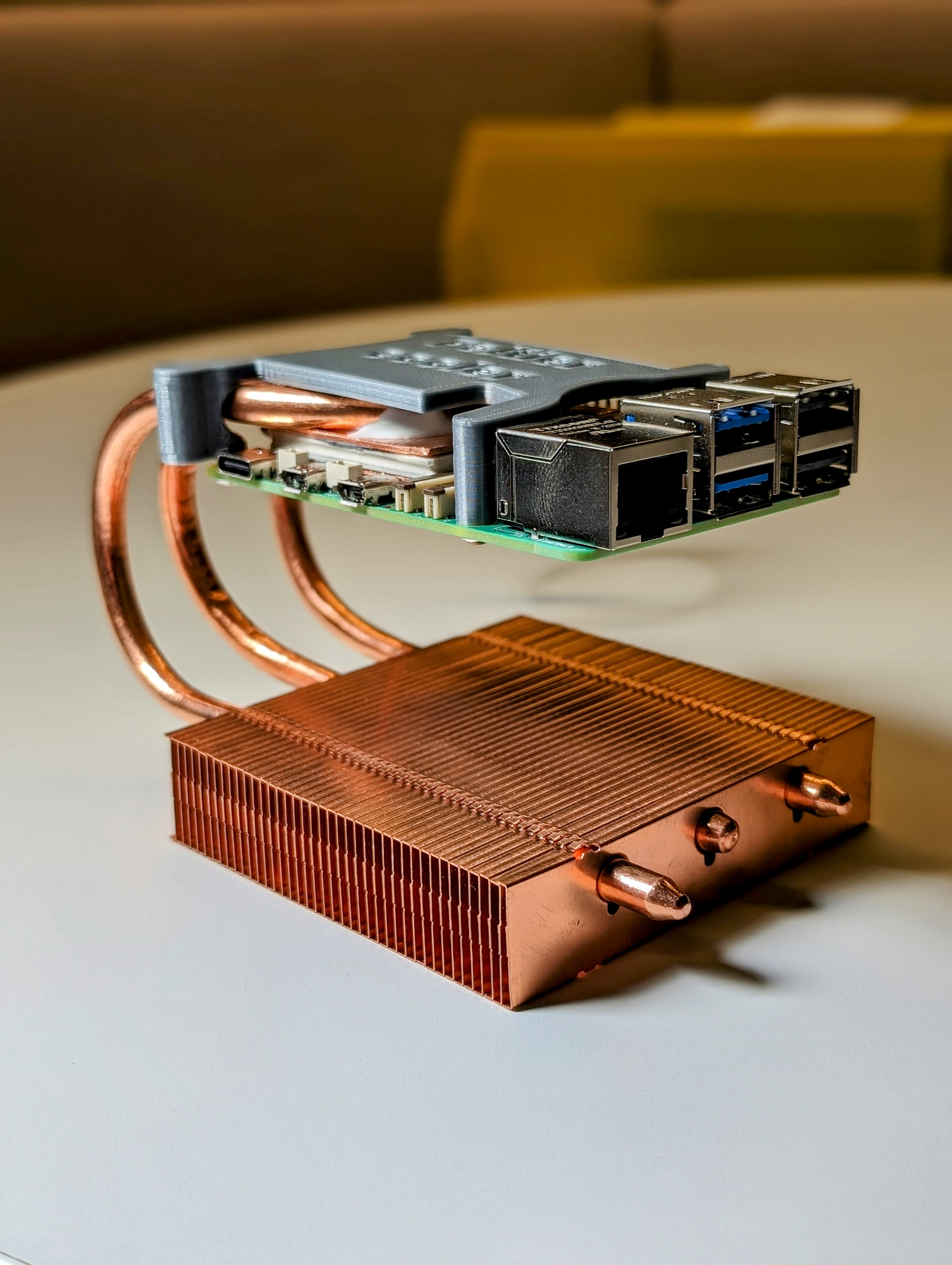Intrepid makerIvan Kuleshov has deliddedaRaspberry Pi 5for the maximum cooling possible! Not content with the typical IHS, Kuleshov has added a Peltier element and a series of heatpipes that take the heat to a large copper heatsink.
I delidded Raspberry Pi 5 CPU and made a custom cooling system with thermal tubes and Peltier element.In theory, it is possible to reach sub-zero temperatures.Testing is in progress. Results will be up soon in a thread here and on my site#raspberrypi #raspberrypi5 pic.twitter.com/29ZXcwmMsqJanuary 19, 2024

Delidding any CPU is not for the faint of heart. One wrong move, and you have a paperweight, so don’t try this unless you know your stuff. Delidding exposed the BCM2712 SoC, comprising an Arm Cortex-A76 64-bit CPU running at 2.4 GHz and a VideoCore VII GPU running at 800 MHz. We can see that Kuleshov has employed plenty of Kapton tape around the board, isolating the components from touching any conductive materials. Inour reviewwe noted that the Raspberry Pi 5 is known to get hot, that’s why for a few dollars more you can (and you really should) pick up an active cooler.
However, the active cooler wasn’t enough for Kuleshov. Instead, they chose a Peltier element, a thermoelectric cooler that uses the Peltier effect. The “hot side” of the element connects to the heatsink, and the cool to the SoC. Flow a little DC current, and your Raspberry Pi 5 gets a cooling boost!

Holding the element to the SoC is a custom 3D-printed jig that also keeps three copper heatpipes in place. These pipes pull the heat from the element and down into a copper heatsink. This is all passive cooling; there is no active fan cooling here! That means the copper heatsink is slightly larger than the Raspberry Pi 5. It also makes for a novel-looking Raspberry Pi for your desk.
How well does it cool? Kuleshov doesn’t know yet. The project is mere hours old, and Kuleshov is running a few tests to provide us with the numbers. They theorize that a Peltier element could reach sub-zero degrees Celsius; how this translates to Pi cooling, we can’t wait to find out.

Get Tom’s Hardware’s best news and in-depth reviews, straight to your inbox.
Les Pounder is an associate editor at Tom’s Hardware. He is a creative technologist and for seven years has created projects to educate and inspire minds both young and old. He has worked with the Raspberry Pi Foundation to write and deliver their teacher training program “Picademy”.

